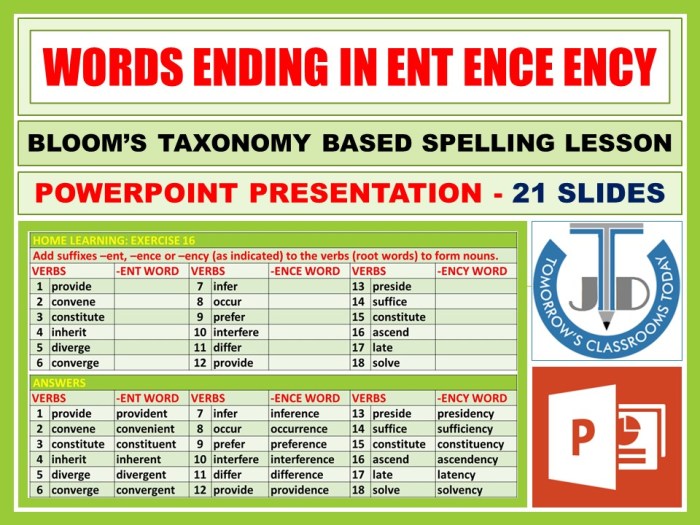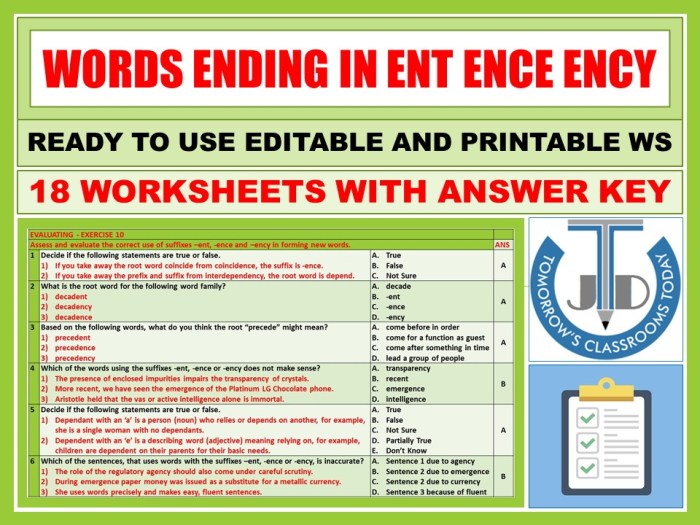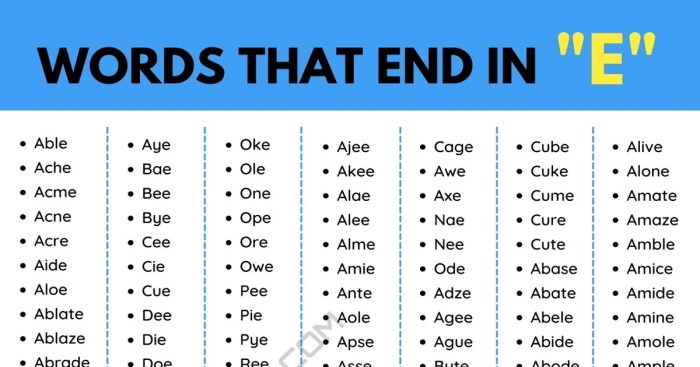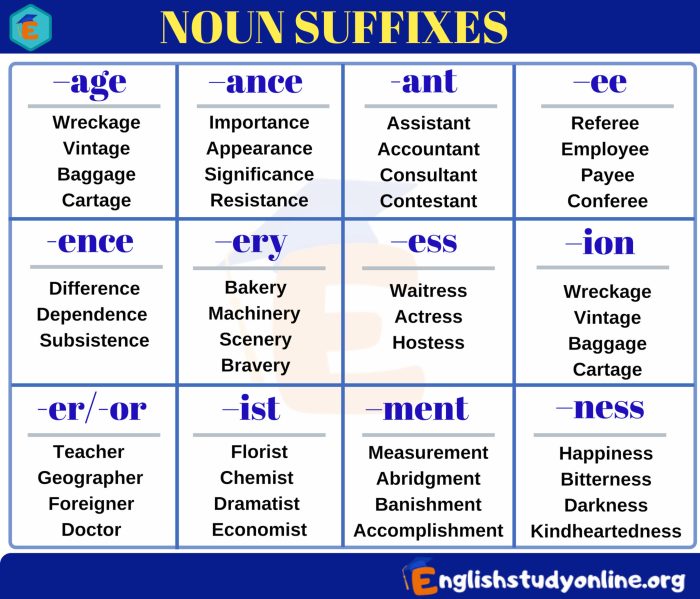Words that end with ence – Words that end with -ence, like presence, absence, and coherence, possess a captivating charm. Their suffixes, derived from Latin, imbue them with a distinct elegance and profound meaning. Embark on a linguistic journey to explore the depths of these enchanting words, their grammatical functions, and their evocative power in literature and beyond.
In the realm of grammar, -ence transforms verbs into nouns, bestowing upon them a substantive quality. Consider the transformation of “assist” to “assistance” or “defend” to “defense.” These nouns encapsulate the actions they represent, becoming vessels for abstract concepts.
Definition and Etymology

Words that end with “-ence” typically denote a state, quality, or condition. They often have a Latin origin, with the suffix “-ence” deriving from the Latin suffix “-entia”.
Examples
- Absence
- Difference
- Evidence
- Independence
- Patience
Grammatical Function

Words that end with “-ence” typically function as nouns. They are formed from verbs by adding the suffix “-ence” to the verb stem. This process is known as nominalization, which converts a verb into a noun.
There are plenty of words that end with “ence,” like “presence,” “absence,” and “essence.” These words often have a sense of importance or significance. For example, “presence” suggests that something is real or tangible, while “absence” implies that something is missing or lacking.
“Essence,” on the other hand, refers to the fundamental nature of something, as in the essence of a raisin in the sun . Ultimately, words that end with “ence” can convey a wide range of meanings, adding depth and nuance to our language.
Nouns that end with “-ence” often express the state, quality, or action denoted by the verb from which they are derived.
Formation of Nouns from Verbs
To form a noun that ends with “-ence” from a verb, simply add the suffix “-ence” to the verb stem. For example:
- Verb:attend
- Noun:attendance
- Verb:depend
- Noun:dependence
- Verb:exist
- Noun:existence
Semantic Analysis

Words that end with “-ence” often carry a sense of state, quality, or condition. They typically refer to abstract concepts or characteristics rather than concrete objects or actions.
A common theme associated with “-ence” words is the notion of “being” or “existing in a particular state.” This includes both positive and negative qualities, such as excellence, brilliance, ignorance, and indifference.
Examples of “-ence” Words and Their Meanings, Words that end with ence
- Absence:The state of being away or not present.
- Excellence:The state of being exceptionally good or outstanding.
- Difference:The state of being distinct or unlike.
- Independence:The state of being free from control or influence.
- Persistence:The state of continuing despite difficulties or setbacks.
Literary and Stylistic Uses: Words That End With Ence

Words that end with “-ence” are often used in literature to create a sense of elegance and sophistication. They can also be used to convey a sense of formality or distance. In addition, words that end with “-ence” can be used to create a sense of mystery or intrigue.
The stylistic effects of using words that end with “-ence” can be quite varied. For example, words that end with “-ence” can be used to create a sense of rhythm or flow in a piece of writing. They can also be used to create a sense of balance or symmetry.
In addition, words that end with “-ence” can be used to create a sense of emphasis or importance.
Examples
- “The magnificence of the sunset was a sight to behold.”– In this example, the word “magnificence” creates a sense of awe and wonder.
- “The silence of the forest was deafening.”– In this example, the word “silence” creates a sense of peace and tranquility.
- “The violence of the storm was terrifying.”– In this example, the word “violence” creates a sense of fear and danger.
Cognitive and Linguistic Implications

Words that end with “-ence” hold a unique place in our cognitive and linguistic landscape, influencing how we understand, acquire, and communicate language.
The suffix “-ence” signifies a state or quality, which often involves an abstract concept. This can present challenges in understanding, as abstract concepts are less tangible and more reliant on prior knowledge and context.
Role in Language Acquisition and Development
During language acquisition, children may encounter words with “-ence” suffixes later than more concrete terms. This is because abstract concepts are typically introduced at a later stage of cognitive development.
However, once children grasp the concept of “-ence,” it can facilitate their understanding of more complex words and ideas. The suffix helps them categorize and organize information, creating a framework for understanding abstract concepts.
Influence on Thinking and Communication
Words that end with “-ence” have a profound impact on our thinking and communication. They allow us to express abstract ideas and emotions, expanding our vocabulary and enabling us to communicate complex thoughts.
For example, the word “dependence” conveys a state of relying on something or someone. This concept is more nuanced than simply saying “I need you,” as it implies a deeper psychological and emotional connection.
Expert Answers
What is the grammatical function of words that end with-ence?
They are nouns formed from verbs, representing abstract concepts.
How do words that end with-ence influence our thinking?
They shape our understanding of abstract ideas and provide a nuanced vocabulary for expressing complex thoughts.